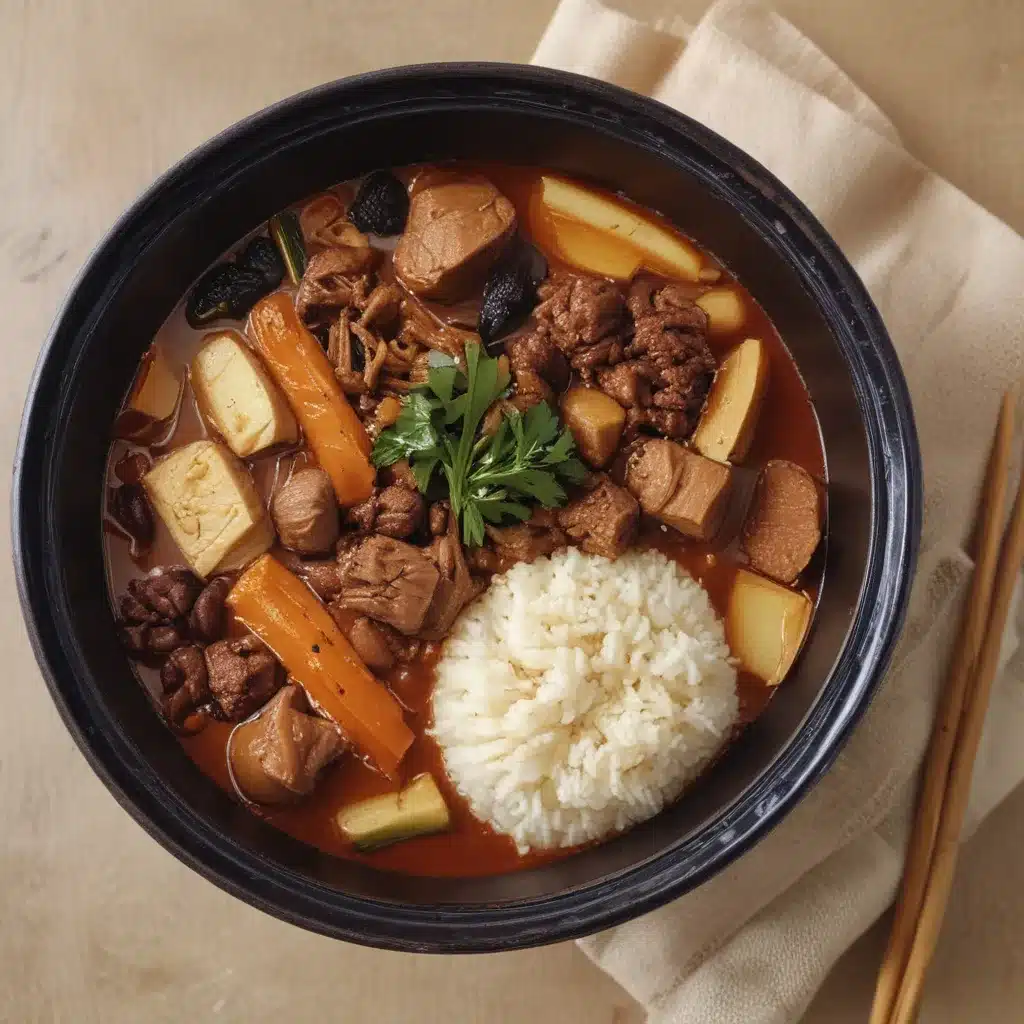
Embracing the Warmth of Korean Cuisine in Boston
As the winter winds howl and the snow piles up outside, there’s nothing quite like the comforting embrace of a steaming bowl of Korean stew to warm both the body and soul. Growing up in Seoul, I have fond memories of gathering around the table with my family, eagerly anticipating the arrival of these hearty, flavorful dishes that had been simmering for hours on the stove. Now, as a Korean expat living in Boston, I’ve made it my mission to seek out the best spots in the city to indulge in these soul-nourishing culinary delights.
One of my go-to favorites is the classic Kimchi Jjigae, a spicy, tangy stew that celebrates the fiery, fermented glory of Korea’s most iconic ingredient. The combination of pungent kimchi, tender pork, and a rich, brimming broth is a symphony of flavors that instantly transports me back to my childhood. I can still vividly recall the sizzle of the stew as it was brought to the table, the steam wafting up and tickling my nose, hinting at the deliciousness to come.
As I dig into the stew, the flavors unfold layer by layer, each bite a revelation. The kimchi’s bold, tangy notes mingle with the savory pork and the depth of the broth, creating a harmonious balance that warms me from the inside out. It’s a dish that demands your full attention, inviting you to slow down, savor each spoonful, and let the comforting warmth envelop you.
Exploring the Diverse Realm of Korean Stews
But Kimchi Jjigae is just the tip of the iceberg when it comes to the vast and captivating world of Korean stews. As I’ve delved deeper into the culinary landscape of my homeland, I’ve discovered a wealth of other tantalizing options that are equally deserving of attention.
Take, for instance, the hearty and robust Doenjang Jjigae, a stew that showcases the umami-rich power of fermented soybean paste. The earthy, nutty flavors of the doenjang mingle with an array of vegetables, tofu, and sometimes seafood, resulting in a dish that is both nourishing and deeply satisfying. It’s a stew that embodies the essence of Korean home cooking, a comforting reflection of the country’s agricultural heritage.
Another standout is the Beef Bone Stew, or Seolleongtang. This delicate, milky-white broth is the result of a painstaking process, where beef bones are simmered for hours upon hours, extracting every last ounce of flavor and richness. The resulting stew is a testament to the traditional Korean culinary philosophy of patience and respect for ingredients. Each spoonful reveals a depth of flavor that is both subtle and profound, a true masterclass in the art of slow cooking.
And let’s not forget the heartwarming Dak Galbi, a spicy, sizzling stew that combines tender chicken, cabbage, and an array of aromatic vegetables in a fiery, gochujang-based broth. This dish is a crowd-pleaser, with its bold, punchy flavors and satisfying textures that make it the perfect antidote to a blustery winter day.
Discovering the Restorative Power of Korean Stews
As I’ve immersed myself in the world of Korean stews in Boston, I’ve come to appreciate not just the flavors, but the deeper cultural significance and restorative power of these dishes. They are not merely sustenance, but a reflection of the Korean people’s resilience, resourcefulness, and deep connection to the land.
These stews are the culinary embodiment of the Korean spirit – they nourish the body, soothe the soul, and bring people together around the table. In a world that can often feel cold and isolating, especially during the long, harsh winters, these stews serve as a reminder of the importance of community, family, and the simple pleasures of sharing a meal.
As I savor each spoonful, I’m struck by the sense of comfort and belonging that these stews evoke. They are the edible manifestation of the Korean concept of “han,” a bittersweet longing and resilience in the face of adversity. In a way, these stews are a testament to the Korean people’s ability to find joy and sustenance even in the most challenging of circumstances.
Seeking Out the Best Korean Stews in Boston
Now, as a self-proclaimed connoisseur of Korean stews in Boston, I’ve made it my mission to seek out the very best that the city has to offer. I’ve scoured the neighborhoods, from Allston to Chinatown, in search of the most authentic, flavorful, and comforting renditions of these beloved dishes.
One of my favorite spots is Korean Garden, a cozy, family-run restaurant tucked away in the heart of Allston. Here, I’m greeted with the warm, welcoming smiles of the owners, who take pride in serving up dishes that evoke the flavors of their homeland. The Kimchi Jjigae here is nothing short of perfection, with a depth of flavor that can only be achieved through hours of meticulous preparation.
But Korean Garden is just one of the many gems I’ve discovered in Boston’s vibrant Korean food scene. From the bustling Dak Galbi joints in Chinatown to the hidden gem Doenjang Jjigae spots in Cambridge, there’s no shortage of delicious and comforting Korean stews to be found.
Embracing the Warmth and Community of Korean Cuisine
As I sit here, sipping on a steaming bowl of Seolleongtang and watching the snow fall outside my window, I can’t help but feel a deep sense of gratitude for the comfort and joy that Korean stews have brought into my life. These dishes are not just nourishment for the body, but a connection to my cultural heritage and a reminder of the importance of community, warmth, and taking the time to savor the simple pleasures in life.
So, whether you’re a seasoned lover of Korean cuisine or simply looking to warm up on a cold winter day, I encourage you to venture out and explore the wide and wonderful world of Korean stews in Boston. Who knows, you might just find a new favorite dish that becomes a cherished part of your own culinary journey.
